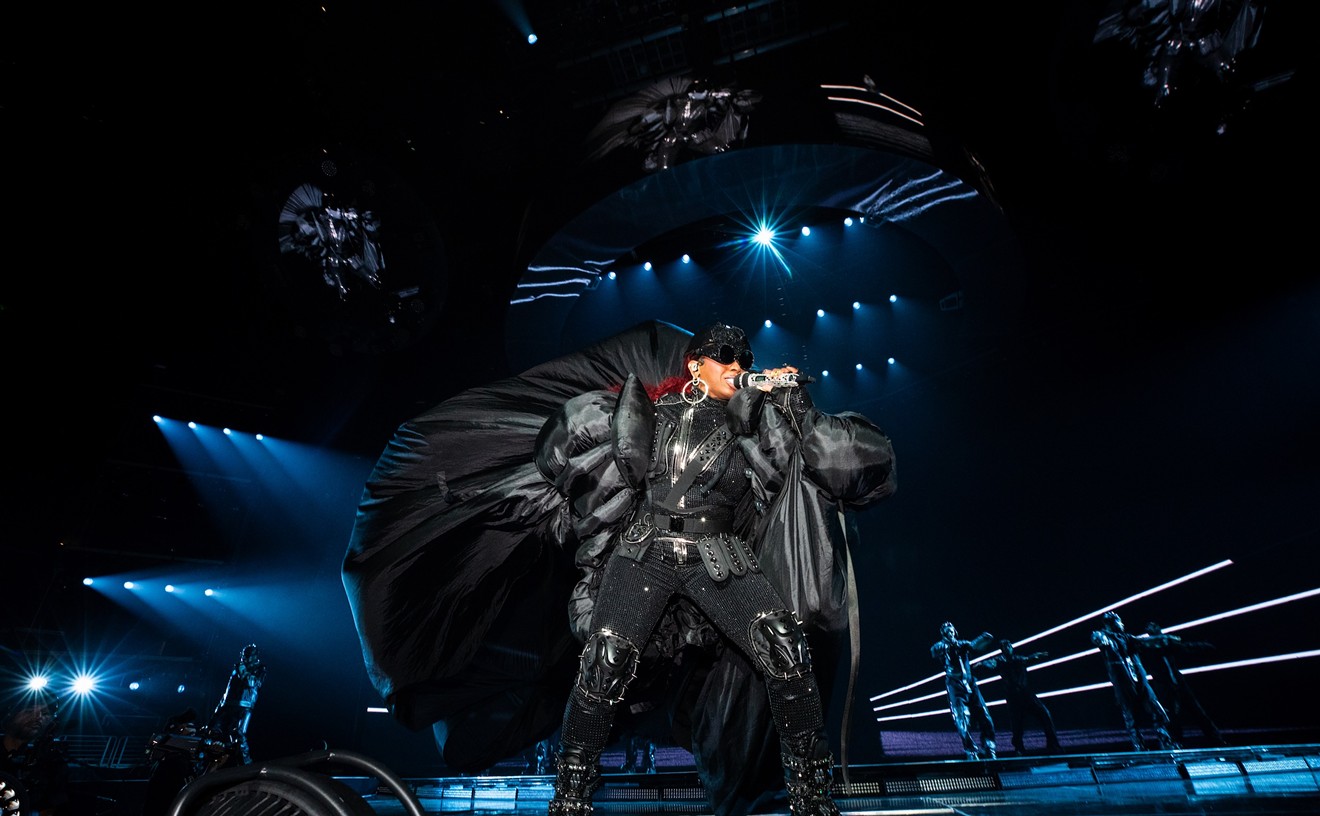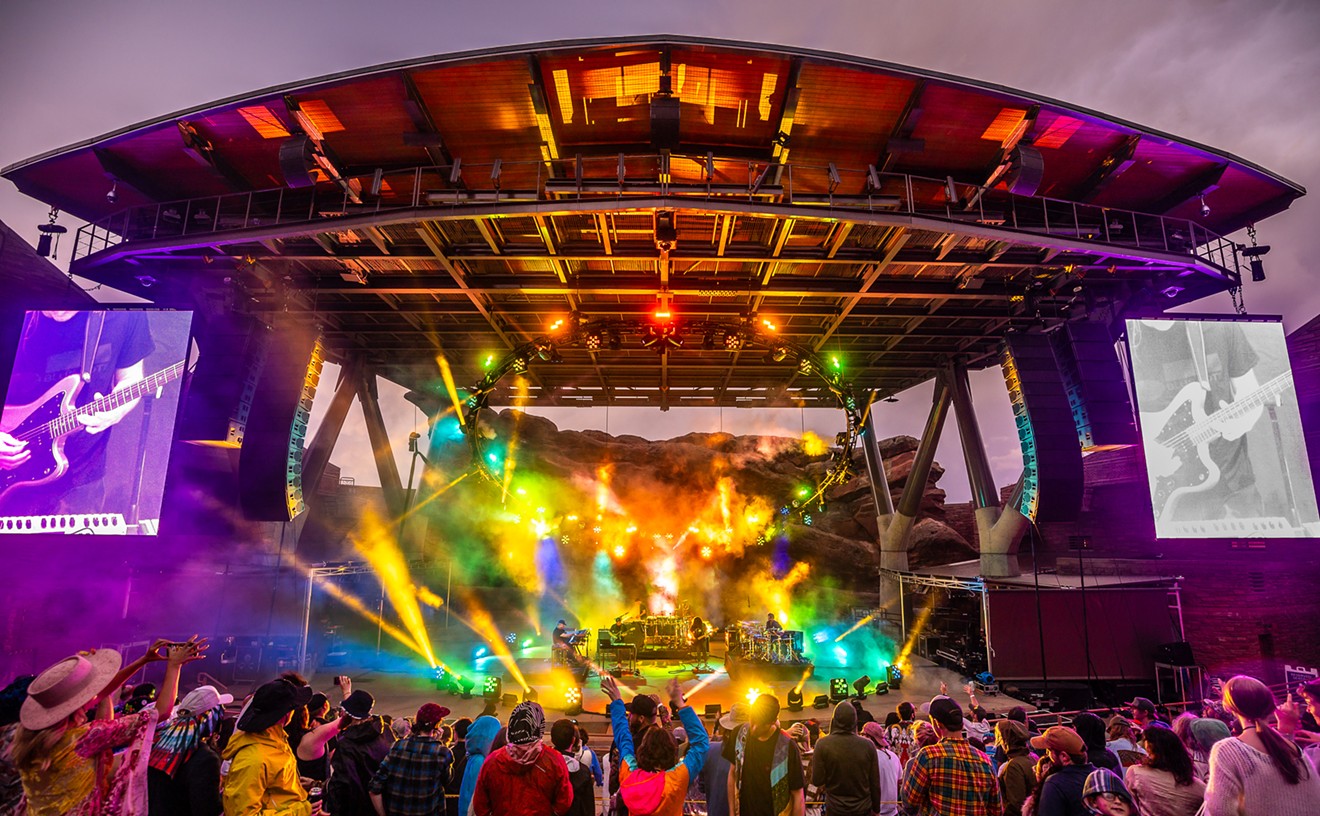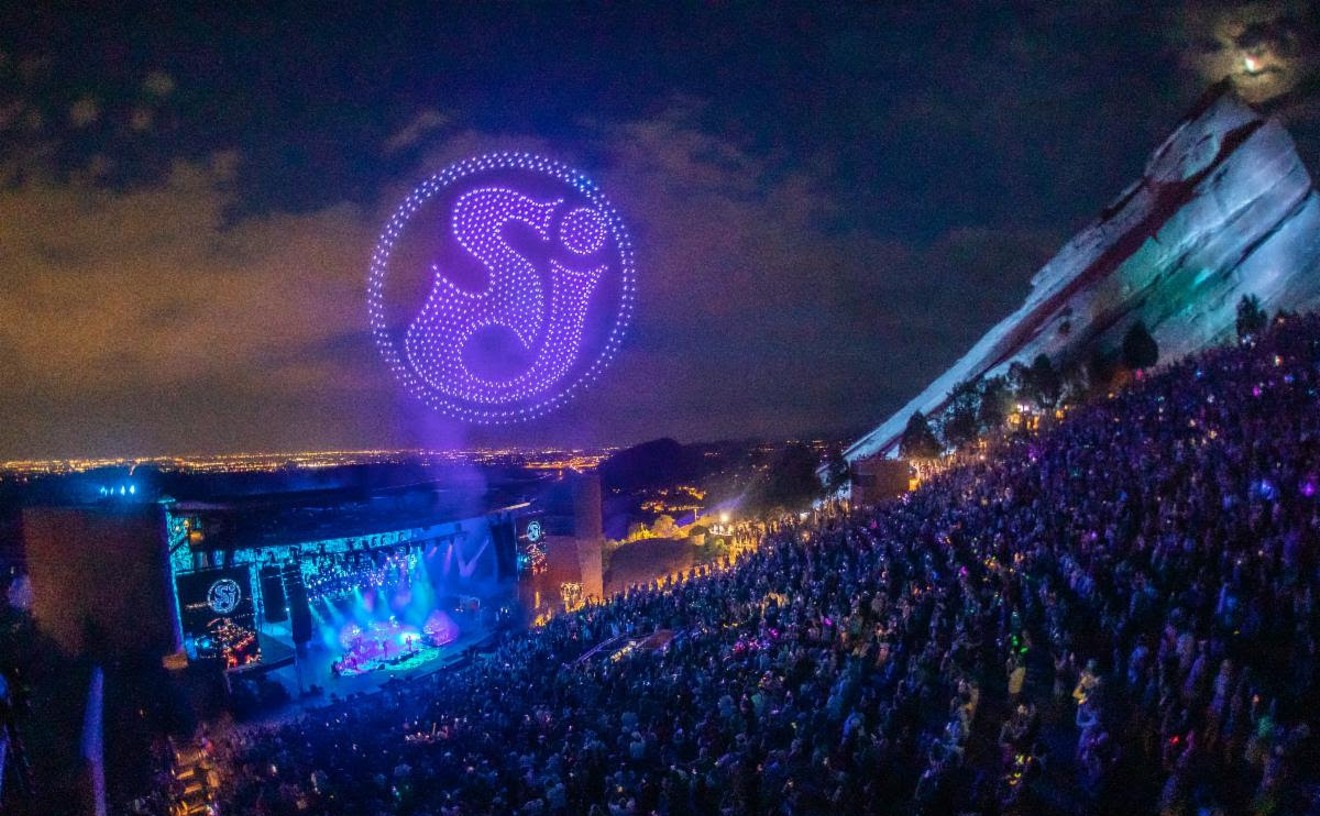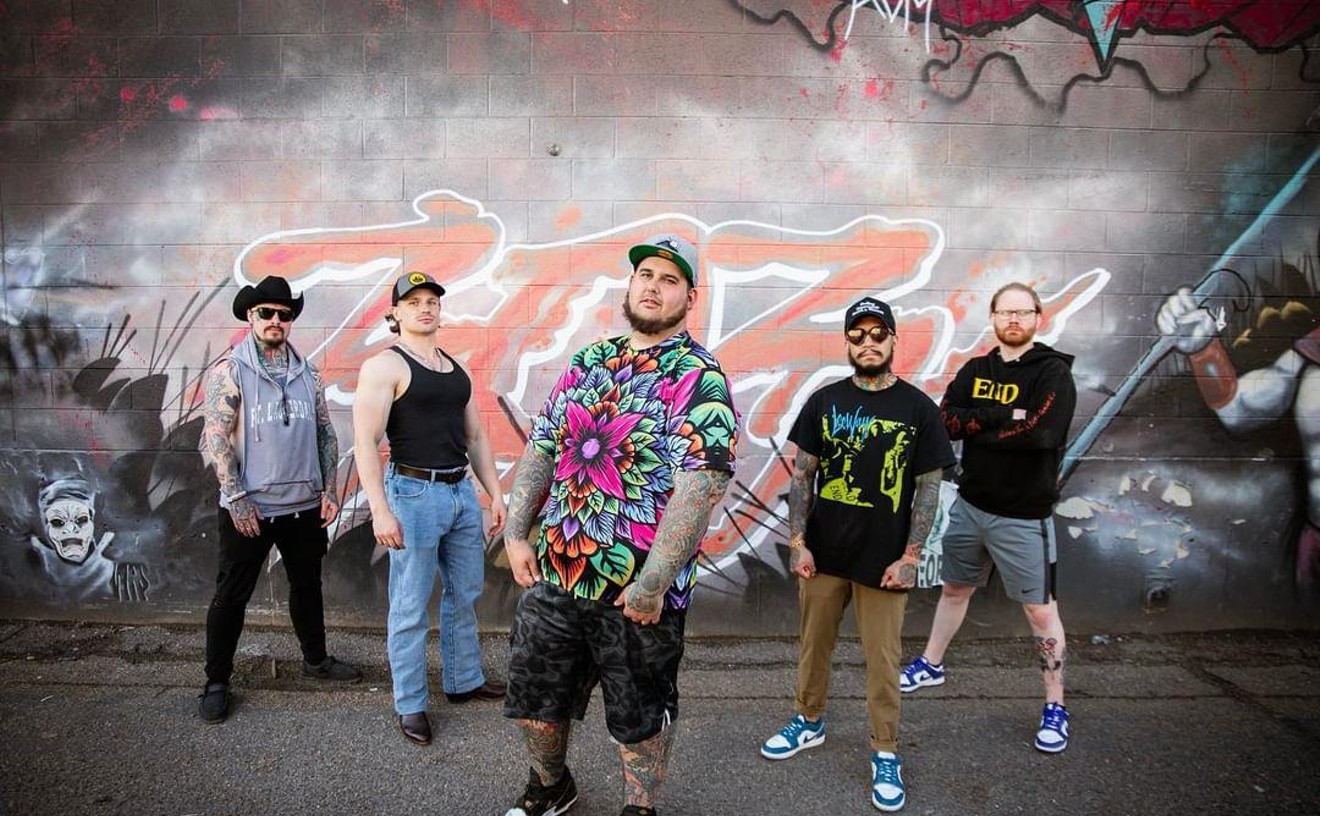In Young's opinion, his peculiar instrument--a shiny, black lacquered Electric Zeta violin--makes an impact on audiences even before a note comes out of it. "When I started playing this music, it caught people as being more strange than usual," he says. "I was always getting a reaction of shock, mostly because of what I play. But it really shouldn't be that shocking. Sure, it's a great hook, and you get people's attention by it. But I never meant for it to be an attention-getter. I've just noticed that people will stop and look and listen to the whole gig just because I'm doing something a little different."
Young didn't grow up in a bluesy household. To the contrary, he was schooled in the classical tradition. He began studying the Suzuki method of violin instruction when he was six, and his two siblings received training of their own at similarly tender ages. Young's older sister eventually abandoned the piano in favor of pediatric medicine, but his baby brother stayed true to music and is currently a cellist with the Boston Symphony. "That was always kind of a dream of mine--to play with the symphony," confesses Young, who's in his thirties. "It's great to see him realize it. But I just all of a sudden took another road, and I had to live that out, stay on it."
After completing his classical studies and serving a stint with the Pittsburgh Opera Ballet in the late Eighties, Young joined the Colorado-based National Repertory Orchestra and the Denver Chamber Orchestra (now the Chamber Orchestra of the West). He received acclaim for his contributions to these groups, as well as for his tunesmithing; his "Brown Cloud Over Denver" was honored by the Colorado Symphony Orchestra as part of its Young Composers program. But when these musical excursions failed to sate his artistic hunger, he assembled his first local blues lineup, Last Fair Deal, and promptly fell in love with the new genre. Today Young limits his classical work to his membership in Marcia Whitcomb's Lark String Quartet and his participation in a biannual Tiny Tots program that introduces precocious listeners to the inner workings of an orchestra. The reason? He's simply too busy playing the blues.
Denver performer Johnny Long is credited by Young for offering the support and inspiration he needed when he began exploring the blues form. But in the end, Young believes, "you really have to teach yourself. There are people who can guide you, but you really have to be self-motivated if you want to get to the higher levels of stuff that you're into. You've got to have a drive, an inner fire, and a passion that burns so much that if you don't do it, it's going to burn you up. Now, if you do it, it could burn you out. But it's better to do it no matter what happens than not to do it at all."
Anyone who hears Young's new recording, As the Sun Goes Down, will be glad the violinist followed his heart. The CD features diverse translations of classics by Willie Dixon, Huddie Ledbetter and Stevie Ray Vaughan, a compelling rendition of "Too Much in Love," credited to fellow Denverite Adrian Romero, and impressive Young originals such as "Hey, O.J.," a timely sendup of "Hey Joe," popularized by Jimi Hendrix. The last tune is the collection's most controversial.
"I started 'Hey, O.J.' as a joke," Young reveals. "It sort of reflects the fact that when all the O.J. stuff was going on, I noticed that many times when someone looked at me, particularly if they were Caucasian, they looked at me differently--like I was some kind of ax murderer. It was a weird feeling--a sense of having strangers feel threatened by me--that I hadn't had since I was a teenager. I mean, I understood why it was happening. So I wrote the song to say, like, 'Hey, O.J., what you did reflects on me by the way people look at me.'
"I understand why he didn't want to pay the price," Young goes on. "Most people, if they have money, are going to try to get away with something. And I think he did it. I was pretty sure of that from the start, when he decided to run. Unlike many of my African-American friends, who said that he didn't do it--that he was being set up--I really figured he did it. The evidence is there. But this is such a divisive issue that even my father thought I shouldn't put the song on the album, because it would make me seem like an Uncle Tom or something."
The decision to ignore this advice turned out to be a good one: "Hey, O.J." is a standout on Sun, and a popular part of Young's live performances. Some people, however, remain uncomfortable with the number. "At this one club in Boulder, they told us that we were not allowed to play that," Young remembers. "It was like, 'Your show is great, but don't play that O.J. song. We can't have that racial stuff in here.' So I thought, 'Wow. Okay, I won't play it.' But some people came in and requested it, so I played it. The management got upset and said we'd never play in that place again. But I had already made that choice; they didn't pay that well, and I didn't really want to play there again anyway, so I played the song. They weren't paying us enough to be able to tell us what to do."
Of course, Young does just that as the co-host of the entertaining Monday-night blues jam at the Catacombs, located inside the Hotel Boulderado. The series, which just celebrated its second anniversary, has thrived thanks to the efforts of several talented regulars (Young, bassist/co-host Mark Diamond, drummer Tony Black and keyboardist James Torres) and a few ironclad guidelines.
"The first thing is, if you want to play, you sign up on the list," Young explains. "Everybody gets three songs or twenty minutes, whichever comes first. We go down the list in the order that they sign up. Other rules include no practicing on stage. And if you play too loud, we'll tell you to turn down. If you don't turn down, we'll take you outside and kick your ass. Period. Then you'll be kicked out. And the final and most important rule is, if you suck, do not come here and expect to play. Because if three people in the audience think you suck, you will be thrown out on your ass and perhaps banned for life. We've never had to get violent, but we just want to make sure there is quality control."
This focus upon excellence extends to Young's CD. The album is currently being shopped to national blues labels, but even if it remains a Colorado-only item, Young says he'll be satisfied.
"Either way, it's fine with me," he says. "I'm not opposed to fortune and fame, but I really don't need it. I feel fine. For me, there's nothing more rewarding than doing what I think I'm supposed to do. That's what I would expect from just about anybody else--to find your calling and do it."
Lionel Young. 9 p.m. Friday and Saturday, March 27-28, and 2 p.m. Sunday, March 29, Little Bear, 28075 Highway 74, Evergreen, $5, 674-9991.










